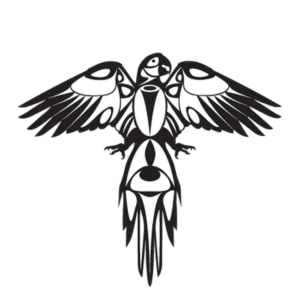Learning Library

Learning is a lifelong pursuit of learning, unlearning, and learning. Ghina Raudhatul Jannah says “Learning is the transformative process of taking in information”. “A process that leads to change, which occurs as a result of experience”. “The process of gaining knowledge and expertise”. Here is where someone will share a greater valued piece of information to help you be a better parrot companion. It may change later because information changes as we receive more data in. That is okay. We do what we can with what we learn. Today is where you put down what you have learned prior to receiving new data to either change or preserve your thinking. Have an open mind. Information has expiration dates. We just don’t know exactly when.
Home & Vehicle Advisories
Kitchens contain many dangers for parrots. We will start with the most well known to date.
Cookware: PFOA and PTFE is what Teflon is. This is very dangerous to use around birds, not just parrots. Look for cookware, air fryers, toaster ovens, toasters, grills, etc. that contain “non stick” which is a warning to look and see why it is non stick. PFOA and PTFE release toxic chemicals when heated about 400 degrees. While you may think you are not using 400 degrees, the pan’s surface may be compromised or thinning and will take less heat to incur toxic fumes. Lead and Cadmium are also part of the chemical makeup of pans dangerous to birds. Look for stainless steel, ceramic, cast iron, or earthen ware to use in the kitchen.
Baking: It isn’t safe to use silicone, non stick wax paper, toaster sleeves, or oven liners
Stoves: It is very dangerous to use a new stove in your home if it hasn’t been off gassed out of the home! This is required for all new stoves due to the chemicals used throughout the new stove. Also, self cleaning stoves are high heat burning off food particals which is extremely dangerous to bird(s) regardless of where they are in the home.
Burning plastic, woods such as cedar for cooking boards, melting plastic of spoons left too close to the burners are lethal for birds.
We know that cooking, sinks full of water, certain foods, and usual proximity to an outside or garage door makes kitchens not a safe place for birds. However, if you wish to share this space with them, prepare the room by minimizing the dangers and have them help you rinse dishes, cut up their chop, and reinforce the good times with a treat.
Bathrooms are another danger for flighted parrots. A very high percentage of deaths occur because a bird flies into the bathroom and lands in an open toilet. Unable to get out, they drown. Keep toilet lids and bathroom doors shut to keep them safe.
Bathrooms is a common source of indoor pollution. It may be our place of respite, rebuild, and recharge but it can be deadly. Many cosmetics, shampoos, cleaners, perfumes used in the bathroom cause air pollution. Some of the items we use everyday contain zinc oxide, a poison to our birds. Put away all products. They are fast even when you have eyes on them. Air out the bathroom prior to bringing in your bird for showers.
Bedrooms have concerns as well. Be thoughtful of them and determine what, if anything, can be done to minimize the risk. Think about all the mirrors, patio doors, plants, candles, perfumes, closets, self closing drawers, going under blankets that may not be realized until too late.
“Minimize risks wherever possible.” “It is better to err on the side of caution than to repent at leisure for the safety of your bird.”
Livingrooms have a host of new things to address or to be mindful of. If there is a gas fireplace is a consideration for a CO detector. A wood burning fireplace has hazards of the type of wood being burned properly. No green wood or firelogs should be burned in the home regardless of where the bird is located. A home will eventually share the same air.
New carpets, rugs, leather, shoes, clothes, and textile furnishings should not be treated with a stain and water resistance treatment with any products containing PFAS.
All new furniture and carpets are made with adhesives, dyes, etc. that should be off-gassed within the garage or outdoor enclosed porch. Appliances (especially stoves) should be used and off-gassed in the garage first.
Tape ceiling fan switches off so that an adult has to approve when they are turned on. #1 cause of injury for birds.
Home improvement products create fumes include fresh paint, flooring that uses toxic glues. The off gassing of toxic chemicals from new furnishings, paints, solvents, adhesives, various finishes, and other building materials are sometimes described as the “new smell” and can damage the avian respiratory system.
Don’t ever start the car, leaf blowers, lawn mowers, snow blowers, etc. within the garage even if the garage door is open.
Don’t allow your bird in the garage, work rooms, attics, basements where there are contaminants.
Behr paint offers a low VOC that registers extremely low on an air quality reader that the rescue has used without issue.
Bird proof your car by getting the air freshener item out and changing the cabin air filter. If the car you are following is putting out some rancid air, use your recirculated air control to stop any new air coming into the cabin while you are behind them. Just be mindful not to do this for long car rides.
Use charcoal packets if you wish to keep the air in your car clean.

